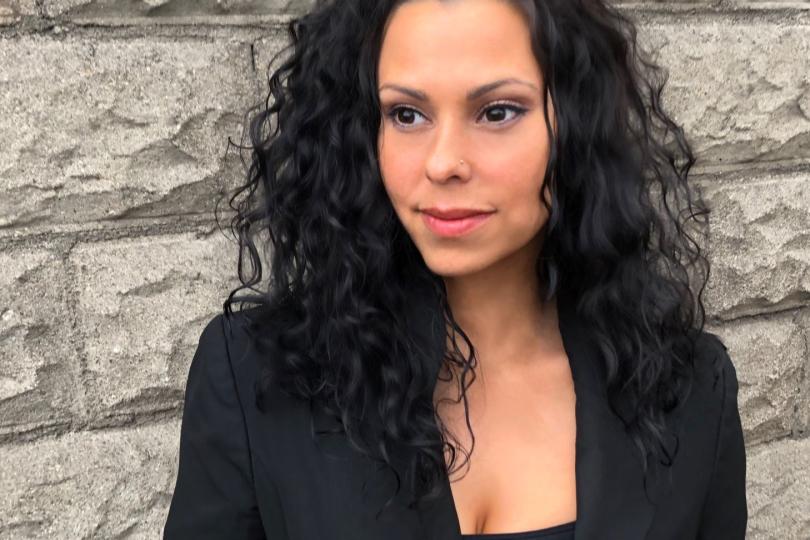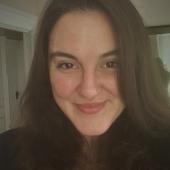Introduction: The Power Dynamics Series -- from a Mixed-Race Latina's perspective

What inspired you to write the The Power Dynamics Series from a Mixed-Race Latina's perspective?
About six months ago, I was asked by a colleague and friend from the Alliance of Latinx Minnesota Artists (ALMA) to attend a meeting he had with a local theater company. He had been asked to direct a show that centered on Latinx characters, which was uncommon for this company. While he felt he would be the best individual to direct the show, he had some concerns with regards to representation and did not want to be complacent in any potential exploitive practices during auditions or in the marketing of the production. He thought that with my institutional knowledge and producing background that I would be a good person to have in the room.
I attended the meeting, dressed in muted business attire, my hair tamed in a loose bun, and mentally tuned to pick up subtext. Careful not to assign blame or use words that might trigger a fight-or-flight response from the company leadership, like “tokenism,” the meeting went well. We had a lively and respectful conversation about the kind of support and actions required for my colleague to accept the directing position. They agreed to remove the barrier of holding auditions at their theater building, where parents would be required to find time outside of work to take their children into a cultural environment that was not established with them in mind. Instead, auditions would be held in a school or community center with a large Latinx population. A paid representative from ALMA who speaks Spanish was also to attend auditions. They agreed that if they cast anyone from the school, they would give back by having a free performance at the school or provide free tickets to the students for this production as well as the following production, regardless if it centered on Latinx characters or not. I don’t think we addressed authentic ways of doing marketing or promotional material, but overall, it was a successful meeting. Afterwards, my friend turned to me and said, “You’re good at this.”
My friend’s compliment, while flattering, was also disheartening. I had spent the past twenty years learning how to maneuver from within the system in order to make a small amount of space for myself and other underrepresented peoples. I was tired. I didn’t want to keep finding subtle ways of circumventing the old guard. I didn’t want to feel obligated to dress to appease the white normative gaze or speak according to their ideas of proper discourse. And, I didn’t want to keep having the most important conversations in private. I wanted to make real change. Then, when COVID hit, I felt this was the time to start publicly instigating the pertinent discussions on the various power dynamics at play in our industry.
Why now? Why start this series during our current COVID time?
The issues I’m privileging with “The Power Dynamics Series” are not new. They are the same issues that were being whispered in rehearsal halls and blurted out during post-show happy hours. Most of us, especially those of us from marginalized populations, are more than familiar with the uneven distribution of power within the theater industry. But now, with theaters shuttering their doors, funding taking a dive, staff being laid off, and an uncertainty about how an art form that gathers people will survive, there is a growing fear that the theater industry will become even more greatly unbalanced. There is concern that any programs implemented or progress towards equity made before the pandemic will now be halted. It is my hope of reminding people that equity is not a novelty; rather, it is essential to the work we do as theater-makers. Now more than ever, we need to have the hard conversations as we forge a new future together.
What was one of your most formative theatrical experiences?
One of the more formative theatrical experiences was with my dad on my sixteenth birthday. The previous year was full of changes. I was placed in an alternative high school with other juvenile delinquents, in which the teachers’ and staff’s indifference to me afforded me time to start working in theater, another recent aspect of my life. My dad had wanted to do something special in support of my newly discovered passion. So, he decided to take me to the Oregon Shakespeare Festival. This was a big deal. My parents couldn’t afford things like this. But somehow, he had pulled it off and I got to see one of my first live productions ever, The Merchant of Venice. It was amazing and spurred my new-found love for Shakespeare. Then, just by chance, we got tickets to see, Oo-Bla-Dee.
Oo-Bla-Dee was a powerful story about an all-black, all-female jazz band during World War II. It was a brutal-beautiful musical where the sexism and racism was in your face and the spectacle was breathtaking. I’ll never forget watching as this Afro-Cuban fairy godmother-like woman glided to the stage on a half crescent moon. I was completely enthralled. When it was over, I instinctively rose to my feet. After a second, I panicked and looked around, but others were standing as well. It didn’t matter that the audience was predominantly white; everyone had witnessed something profoundly real and magical. It was truly a universal human experience.
Like so many theater professionals, you wear a lot of hats! What are some of your upcoming projects?
At some point, I expect I’ll be working with Pillsbury House Theater again. I regularly direct performances and facilitate discussions on equity, diversity, and inclusion for their Breaking Ice Program. I absolutely love working with Pillsbury House Theater. The work there is incredibly meaningful, and I feel like I can truly bring my whole self to the process. I am also planning to be a returning guest director for the UMN/Guthrie BFA program for the production, The Heresy of Love. I had the honor of working with students from the program last year. It was such a joy to work with smart and talented young artists who are eager to collaborate and take risks, and I assume this upcoming process will be just as rewarding.




